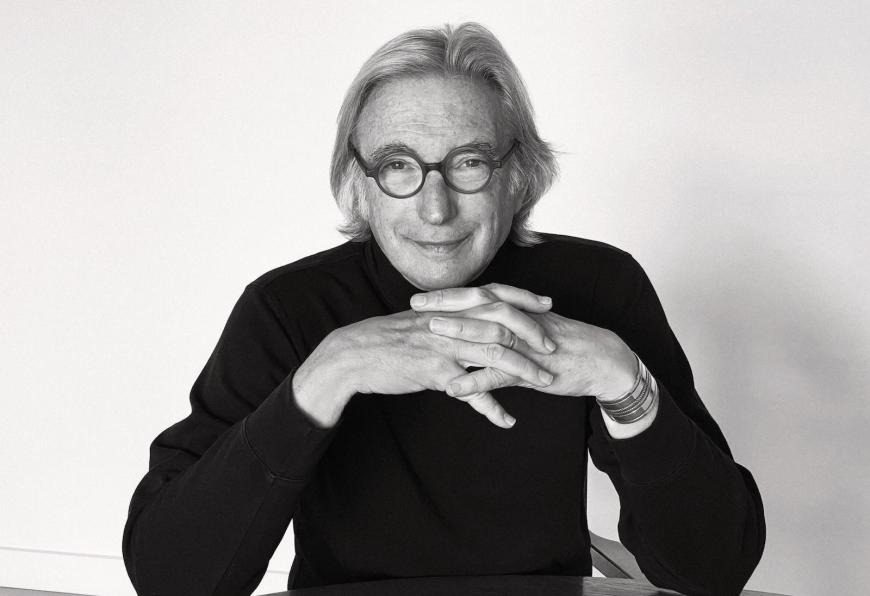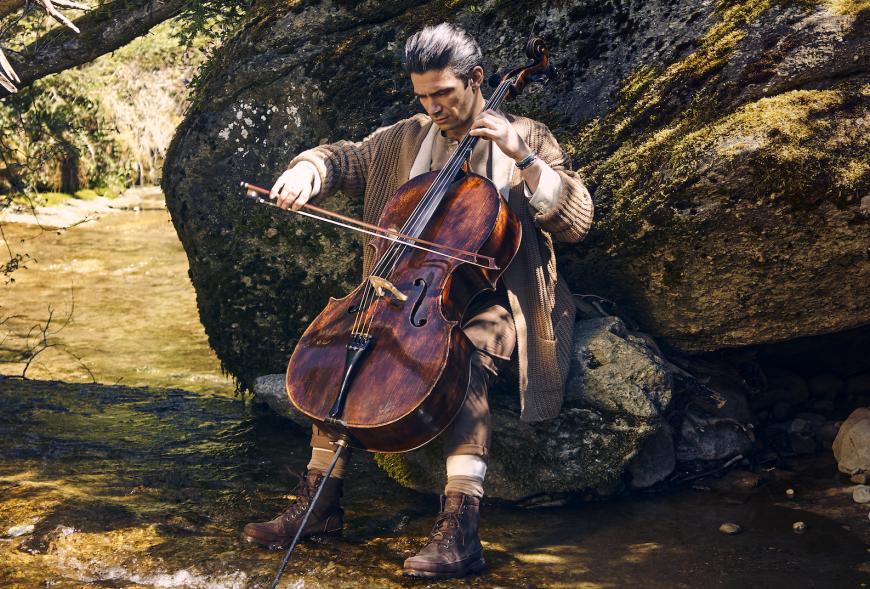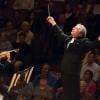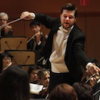
With the San Francisco Symphony string and percussion players masked up, it felt like 2021 all over again at Davies Symphony Hall on Thursday, January 20. The presence of the still-circulating omicron variant altered faces in the audience as well, all of whom were required as of that date to wear KN95-grade masks. (Symphony personnel had boxes of them available for patrons.)
But when Michael Tilson Thomas arrived at the podium, to the same kind of rapturous ovation he received here in November when he conducted the ensemble three months after his August brain surgery, all things pandemic receded. After thanking the audience for their response and promptly appending a self-deprecating joke, the orchestra’s music director laureate launched into some characteristically illuminating remarks about the first piece on the bill.
About Shostakovich’s Cello Concerto No. 2, MTT invoked Schubert and Mahler song cycles and a wandering busker to characterize the first movement and a bagel vendor’s musical sales pitch to capture the seed of the second. As for the raucous eruption of the horns in the third movement, MTT assured the crowd, “Trust me. They’re playing what’s written.”
The proof, as ever, is in the music. And proof there was in abundance. In a performance brimming with limpid grace, coruscating wit, poised delicacy, pulse-quickening fervor, and technical panache, the concerto delivered from moody start to its wistful shrug of a finish.
Gautier Capuçon, a deeply gifted and charismatic charmer, was the soloist. In a part that MTT described as “really hard” the French cellist met every demand with assurance and originality. To say he produced a singing tone — an easy commonplace about the instrument — is both true and a reductive simplification. Capuçon brought multiple voices into play, from the haunting, umber baritone of his opening solo to the flighty twitter of his high-register runs, among many superbly phrased utterances. His vibrato added lushness — or it was coyly, chastely withheld. Strums and pizzicatos had a resonant edge. Double stops were like crystalline duets.

The orchestra partnered him with precision, restraint and playful zest. At once tautly made from its recurring themes and delightfully eccentric, the piece gives the ensemble plenty of stunts, including that caterwauling horn fanfare to what must be one of the longest tambourine rattles in symphonic history. MTT marshaled it all adroitly.
With Capuçon leading the veering charge and musing retreats, the piece not only revealed its many colors but a stirring amplitude of feeling as well. Even as the woodwinds splatted and gossiped behind him, or a xylophone seemed to mimic and taunt, the cello plunged on, whether with caustic insistence, insouciance, burelsque abandon, or quizzical lines that seemed to ask what all the questing was about. The fadeaway end felt, fittingly, to open still more questions.
When it was all over, Capuçon affirmed the affinity he and the orchestra had achieved. With team-player modesty, he slapped the scroll of his cello to applaud one section after another MTT signaled out for notice. The shining circle was complete.
Prokofiev’s familiar Fifth Symphony occupied the second half of the program. Thomas led a brawny, brass-heavy performance. The sonic muscularity dominated to a fault. Balance was a persistent problem, with the strings too often swamped. Some entrance and exit details were blurry. The result was a performance that sacrificed shapely interpretive contours for a sequence of big effects.
There were things to admire along the way. Carey Bell’s clarinet solos were sweetly choice. The percussion section, busy all night, boomed and chattered splendidly. A clarifying sun broke through in the exciting, rhythmically charged measures of the last movement.
Maybe nothing could have risen to the level of the Shostakovich. In a memorable performance that must have made many new converts to the concerto, that was more than enough.




